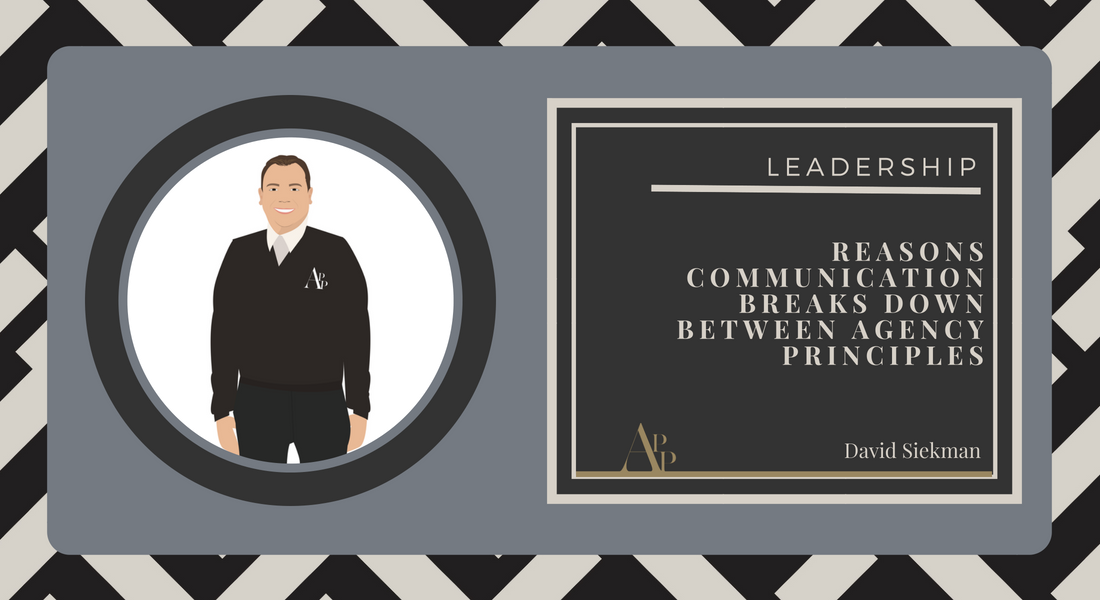After working with so many agencies across the country, we have seen everything imaginable when it comes to communication issues between agency principals. It doesn’t seem to matter if it is a small agency or a large agency. The interpersonal relationships can have a way of affecting any size agency.
This isn’t to say that partnerships can’t work. Some of the most amazing agencies in this country are run by husband/wife, siblings, parent/child, friends, or just partners. This blog is not intended to argue against partnerships but instead to identify the potential communication pitfalls to be aware of in any type of partnership. Our intent is also not to list out every potential issue; similar to a marriage, the relationships between partners are really too complex to break down in a simple blog. Our intent is to open a discussion.
Different Focuses
Similar to issues that can develop between producers and account managers (service and sales) or other departments, often principals have different areas of the business where they focus their efforts. While it is great to have principals not all focused just in one area, it can cause issues when one department is viewed as not contributing enough to the agency’s success. Sometimes this is the case and other times it’s more of a deflection or perception versus reality.
A great way to combat this is to have clear individual as well as department goals. The goals should be aggressive but reasonable. Having a tiered goal system is also helpful so that it’s more on a range instead of a pass/fail approach. This also helps you determine compensation and bonuses for the staff which will reduce issues by reducing the subjectivity of these awards.
Spending Comfort Level
Many agency principals approach investments in the agency from different perspectives. Some want to be more aggressive and others like to stay the course a little more. Different focuses as discussed in our first section can also contribute to varying degrees of a desire to invest in different departments.
To address this, creating a budget that is based on best practices can reduce the ongoing debates. It may not be easy, but if you take a month to budget out the next year in September or October you can reduce (not eliminate as there will always be extra expenditures) the number of discussions for the next year.
Different Visions
Where do you want your agency to be in 5, 10, 20 years? If you are a sole proprietor, you can set the vision. If there are 2 or more partners and they do not answer this question similarly, it can cause significant confusion and lack of execution from the staff. It is hard to follow when the leaders are going in different directions.
To help create a clear direction for the agency, quarterly and annual strategic planning sessions can help keep everyone on the same page. Even if there may be a slight difference in the 10 year destination, a clear direction agreed upon by the principals and clearly disseminated to the staff will reduce confusion for the next 90 or 365 days.
Personalities and Family Issues
Probably the most difficult issues to overcome are those that go beyond the business. We see this mostly with family (which can be better looked at in the linked blog probably can’t even be adequately discussed in a book) but even friends or business partners can have conflicting personalities. Most times this can be separated and people can focus on their work while they are at work by putting the differences aside.
Recognizing that it is in the best interest of the agency to be able to put aside these differences is the only real way of having them not affect the business. Leaving the issues at the door will allow your staff to perform better and make it less likely that your clients will experience any negativity created by a struggling relationship.
No Communication
Finally, a lack of communication can create a downward spiral. Sometimes all of the above are issues but we stop talking about them because we get frustrated by the results. This leads to a larger divide making it less likely we will agree on decisions made by the other party. Keep up those weekly, monthly, quarterly, and annual meetings. Recognize that they may not always go as we want but if we establish routine meetings and allow discourse to be accepted we will keep the agency on track to achieve our larger goals.
Generally speaking, those agents with a plan and a focus can maintain communication even when external factors get in the way. Make sure you work together and you will achieve a positive end result and your agency goals!





